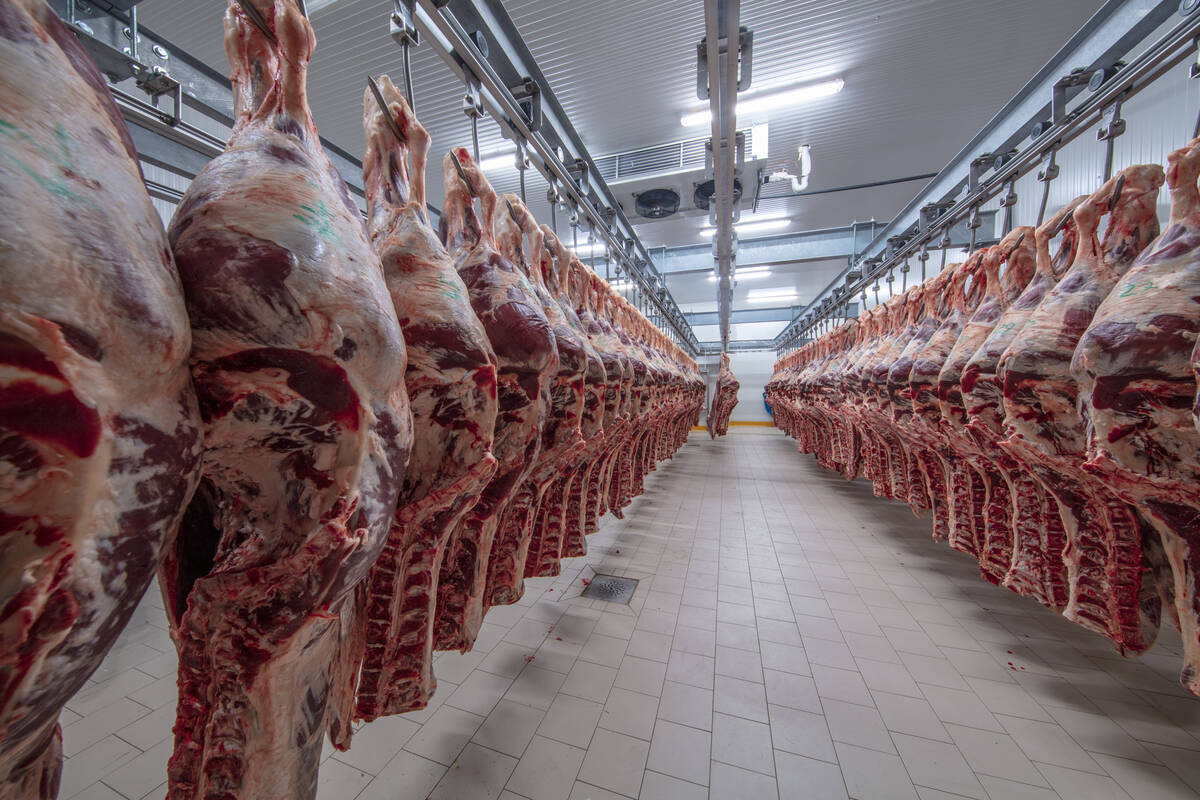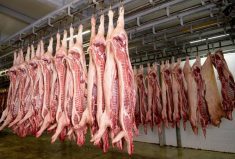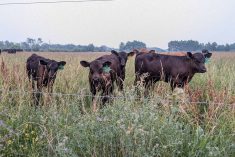A “routine” detection of listeria at one of Maple Leaf Foods’ processing facilities in Toronto shows its overhauled food safety protocols are working as they should, the company said.
Ordinarily, other than a quick recall announcement, findings of listeria at food plants rarely linger in the national news. The Canadian Food Inspection Agency last week warned on possible listeria contamination in sandwich products and two different brands of sliced leeks.
But Maple Leaf on Saturday shipped a press release confirming a “routine” detection of listeria at one of its two Cappola Food meat processing plants in Toronto.
Read Also

Tyson Foods settles U.S. beef price-fixing lawsuit for $82.5 million
Tyson Foods has agreed to pay $82.5 million (C$113.3 million) to settle a proposed class-action lawsuit brought by grocers and other businesses that accused the meat and poultry giant of conspiring to inflate U.S. beef prices by restricting supply.
The company — which has won praise in the business press for its public relations in the wake of last summer’s major listeria outbreak linked to contaminated equipment at an unrelated Maple Leaf plant elsewhere in Toronto — emphasized Saturday that “the finding of listeria in a food plant may occur daily.”
“The goal of a well designed program is to generate those findings, create data patterns for additional investigations and to use the results of these findings on a daily basis to eradicate it at the location in which it was found,” the company said.
Maple Leaf said Saturday that the Cappola plant in question produces predominantly dry cured meats, which don’t promote the growth of
listeria and thus pose “considerably low” health risk by federal health standards.
“There was and is no food safety risk to the public” from the Cappola finding, Maple Leaf said. CFIA has confirmed there is no food safety risk and will not investigate the finding, but “is at the plant verifying and
validating the unprecedented levels of data that Maple Leaf has shared,” the company said.
“The greatest risk to
the Canadian food safety system is the multitude of Canadian plants which do
not find positive test results simply because they don’t test adequately,” Maple Leaf CEO Michael McCain said in Saturday’s release.
“If you test, you will find and you can eradicate with the proper protocols. If you don’t test, you won’t find, but there will be no eradication.”
The outbreak last August involved a specific listeria strain in prepared meats that were linked to Maple Leaf and that sickened 56 people in seven provinces, mostly in Ontario. Among those 56 cases, as of Dec. 10, 2008, the listeria strain in question has been ruled to be the “underlying or contributing cause” in the deaths of 20 people.
Maple Leaf’s response was a major and well-publicized product recall that crossed over into other food brands using product from the facility. The Toronto plant tied to last summer’s outbreak was shut down Aug. 20 and is now only in limited production.
The incubation period for the illness has passed, and no new cases of listeriosis linked to last summer’s outbreak have occurred in at least three months.
The federal government last week named Sheila Weatherill, a former health region CEO from Edmonton, to head its inquiry into last summer’s outbreak and the efficiency and effectiveness of Canada’s food safety systems in terms of prevention, product recalls, collaboration and communication.














